The importance of software project planning shouldn’t be underestimated — a good plan is crucial for guiding all the project stakeholders through the project phases. A well-thought-out project plan helps specify project goals, minimize risks, and set realistic timeframes. And that’s not all. In this guide, we’re exploring the importance of planning in project management. Let’s get down to business.
All clients expect us to build software that will appeal to users and yield good returns, which we bring about through careful planning. The underlying motive is to help clients understand the purpose of their projects because only then we can deliver the right product. It will not be an overstatement to say that planning paves the way for a project to work out.
One of the first tasks for team leaders to complete when a company decides to start a project is to develop a project plan.
The process of creating a solid project plan can be quick and simple, but it can also be difficult and time-consuming. It actually depends on the project's nature. The significance of project planning cannot be overstated. Consider also useful guide on how to start an IoT project.
Need to build a custom IoT solution from scratch or looking for software development partner?
Project planning differs from other project management stages in several ways. It's one of the most important steps in the entire procedure. Let's examine the precise reasons of importance of project management in software development, not only for the project but also for the business as a whole and its personnel.

1. What is planning in project management and why does it matter?
Your best line of defense against the typical hazards that lead to project failure is a plan. Managing projects can be challenging if you've ever run over budget, missed a deadline, or had to deal with a disgruntled team. The most crucial thing a project manager can do for both their own and their team members' peace of mind is to have a plan.
For example, there are clients who have a half-baked idea in their minds, say, they need seven transparent perpendicular lines and one in the form of a kitten.
Making running out of heating oil preventative was the client's concept. During peak season, it's possible that you won't be able to receive a delivery right away. In America, unfortunately, this is a pretty widespread practice. It is therefore best to plan the delivery in advance. At that point, a smart energy consumption measurement gadget is useful.
The Indeema team created the software for the gauge that is screwed onto the top of the heating fuel tank. The solution is categorized as IoT because it connects to the app and provides data to your smartphone or tablet. An app tells you when it's time to top off your tank, plainly shows how many gallons have been used and how many are left.
Not only do we attempt to draw these lines but we also try to grasp what they are used for and who will be using them. After eliciting the expectations, we make suggestions on how to improve or optimize the product. We also propose new capabilities that the client didn’t envision. All obtained information is documented and scrutinized by the clients and developers.
Even if the client provides a full description of the project, you should meticulously analyze it to make sure it is a perfect solution as there can be implementation constraints, localization issues or other nonfunctional or missing features that have not been considered. Again, it is the ultimate goal of the project that counts. Here are also tips for plan a budget for digital transformation.
At the end of the day, it is this goal that defines the project scope, namely the requirements that are collected and validated in discussions between all stakeholders constitute the scope.
2. What is involved in project planning?
Project planning isn’t just a phase of project management. In fact, it’s one of the key stages of the software development process. Let’s dive deeper into why project planning is so essential — not only for successful project execution but also for your team.
One of the crucial documents that the project manager must create is the project plan. It will include the project's scope, budget, and timeframe. It also consists of all necessary operations, resources—from people to machinery to infrastructure—and finances.
The project plan also outlines a communication strategy to keep all stakeholders updated on the project's status at all times, as well as all the risks connected to it, how to manage them, and contingency plans.
Knowing the reasons of importance of software project planning is vital before thinking about the planning stages and objectives.
3. What are the benefits of project management in software development?
3.1 It improves team communication
Everyone is aware of how important communication is in planning in project management. A plan is also one of the best tools you can use for communication to keep everyone updated on your project. This is due to the fact that it captures all pertinent information about your project, even when things change.
3.2 It makes it easy to track project goals and outcomes
Plans without documentation don't hold anyone responsible.
The stakes are raised when your team and stakeholders can be held accountable for tasks in a plan that is accessible to everybody. People will be motivated to complete tasks on time and to a high standard if roles and duties are stated in your plan clearly. That's how easy it is, in fact.
3.3 Deadlines are met thanks to plans
Delivering tasks on time will help you gain respect and trust.
A plan divides the project timeline into manageable segments so you may monitor progress in relation to the completion date. If things start to fall behind schedule, you can step in early and decide what needs to change in order to turn the situation around. Find out why You’re Failing to Meet Your Project Deadline.
3.4 A good plan helps you manage risks better
The vital importance of planning in a project also arises from the advanced risk management it provides, as you can’t know what issues you might come across unless you thoroughly plan your steps. On the other hand, a solid plan involves a realistic risk assessment, allowing you to minimize risks in advance.
3.5 Plans provide assurance
Positive project vibes aren't the only thing that good project planning can offset. It gives everyone involved in the endeavor a boost in confidence.
No need to ponder whether or not things are moving quickly enough to meet the deadline. What to work on next is not up to your team to decide. Additionally, neither leaders nor clients need to be concerned about your ability to produce what they require on schedule and within budget.
3.6 Plans reduce anxiety and eliminate fear of change
Consider a project plan as the step-by-step blueprint that leads everyone successfully through the requirements for success without the need for educated assumptions.
3.7 It helps keep all collaborators aligned
Agile processes frequently forgo the plan in favor of starting the current tasks. However, a plan doesn't have to obstruct project execution.
A plan, in reality, unites your team under a single project goal so they can do jobs more quickly. Everyone is in agreement on the priorities, expectations, and what must be done to finish the project on schedule.
Your team can clearly see how their work affects others and influences the ultimate deadline when they have a plan in place. This gives you more incentive to stay on course and prevents confusion from slowing down your project.
3.8 Plans bind and concentrate teams
It’s safe to say that the particular importance of project planning lies in planning the resources. Project success greatly depends on effective resource use, including time, budget, human resources, and equipment. Without a realistic plan, you simply can’t make sure that your resources are managed in the most effective way.
Agile processes frequently forgo the plan in favor of starting the current tasks. However, a plan doesn't have to obstruct project execution.
A plan, in reality, unites your team under a single project goal so they can do jobs more quickly. Everyone is in agreement on the priorities, expectations, and what must be done to finish the project on schedule.
Your team can clearly see how their work affects others and influences the ultimate deadline when they have a plan in place. This gives you more incentive to stay on course and prevents confusion from slowing down your project.
3.9 Plans enhance revenue
A scope adjustment that sneaks up on you and pushes back your deadline. Stakeholders who abandon you when you need their support for progress. Members of the team that spend more time determining what they should do than actually doing it.
You have a better chance of meeting your project's deadlines and budget if you have a strategy. Additionally, less time and money lost means more room for your company to expand.
3.10 Plans encourage responsibility
The stakes are raised when your team and stakeholders can be held accountable for tasks in a plan that is accessible to everybody. People will be motivated to complete tasks on time and to a high standard if roles and duties are stated in your plan clearly. That's how easy it is, in fact.
4. How to develop your planning skills
Given the importance of project planning, it is always worth improving these skills. Work on foreseeing all project elements that will either guarantee success or put it at risk if you want to become an excellent planner. Check first to see if the project is in line with bigger business goals. If not, the project needs to be looked at more closely. There will be instances in which a project is still necessary to solve a discrete issue that may or may not be related to the larger strategic vision.
Looking at each of the knowledge areas listed below can help you and your team plan by ensuring that you and your team will address each of these areas in a way that will assist in achieving all of the end goals:
⚈ Communications
⚈ Costs
⚈ People resources
⚈ Procurement
⚈ Quality of the output
⚈ Requisites for business
⚈ Risks
⚈ Schedules
⚈ Project scope
⚈ Stakeholders
So, before you begin your project, here are some important steps to take. Even if you are not a project manager, but rather a customer, you must be aware of these major steps in order to be an effective ruler on your project.
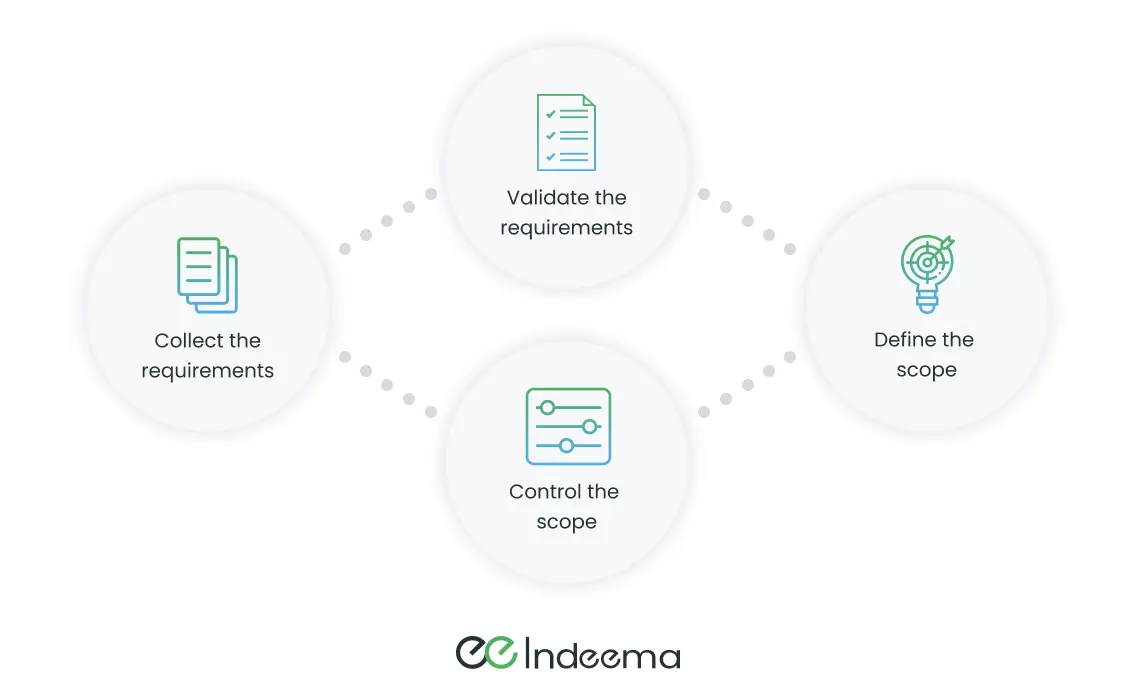
Diagram 1. Agree on the project scope
Clearly a schedule is necessary to complete this scope of work timely. It depends on the estimated efforts needed for the tasks.
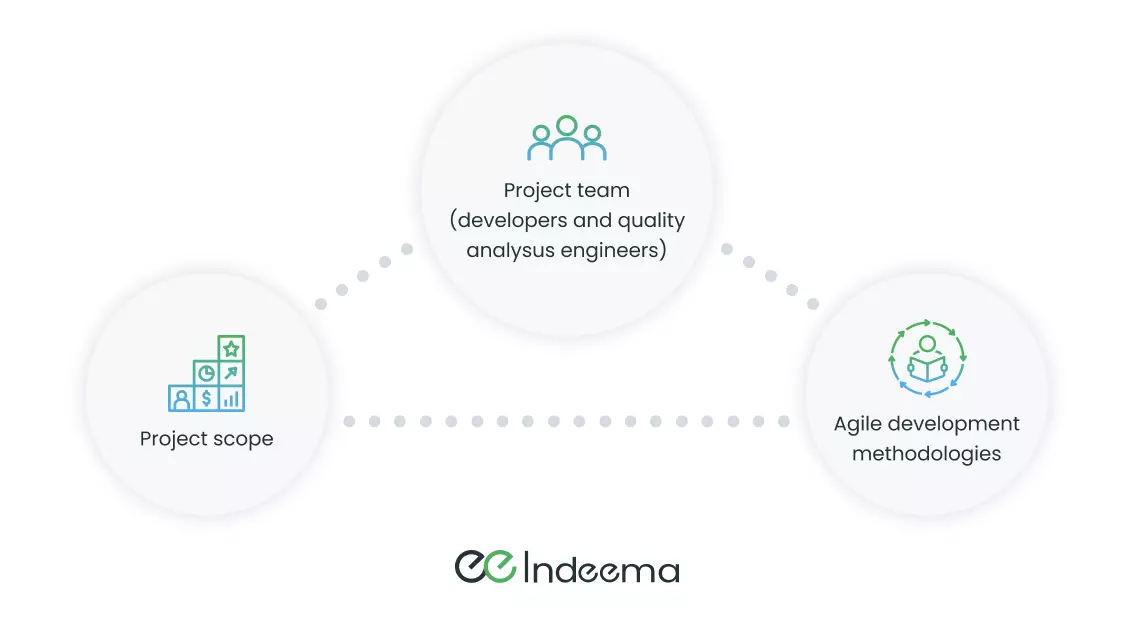
Diagram 2. Approve the project schedule
Evaluating risks is critical to the success of every venture. We use our knowledge of the market and rely on our experience to foresee risks on any undesirable consequences.
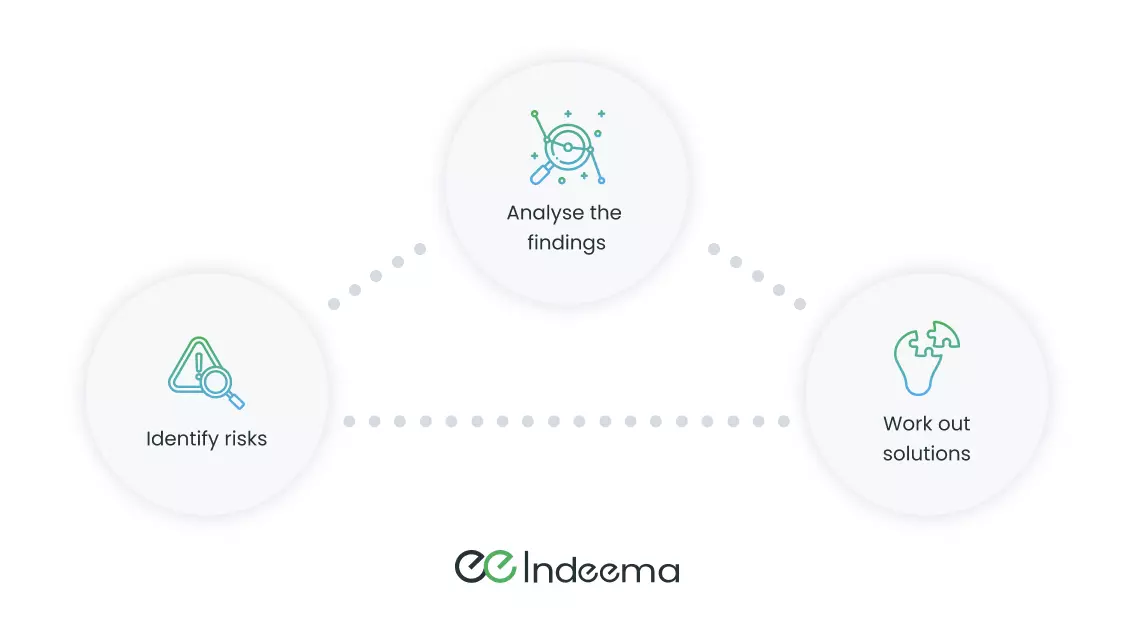
Diagram 3. Evaluate risks
Eventually, we plan the budget considering the provisional costs.
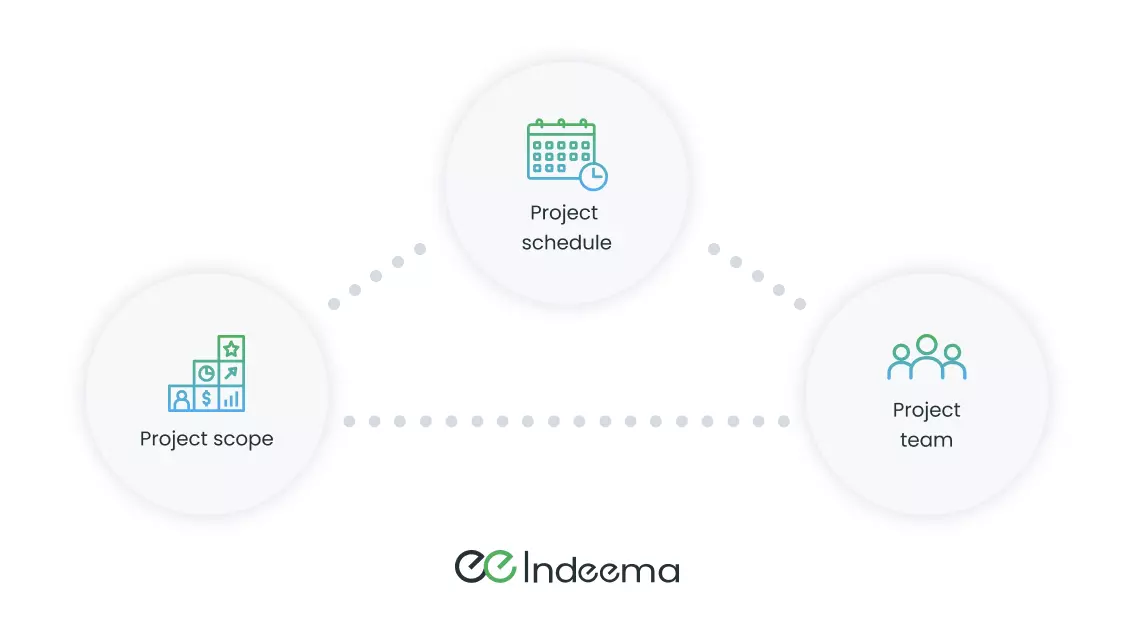
Diagram 4. Set the budget
We assemble the team depending on the project complexity. Quality assurance engineers are involved in the project from the very beginning. They are able to detect ambiguities and discrepancies early on and reduce the risk of failure.
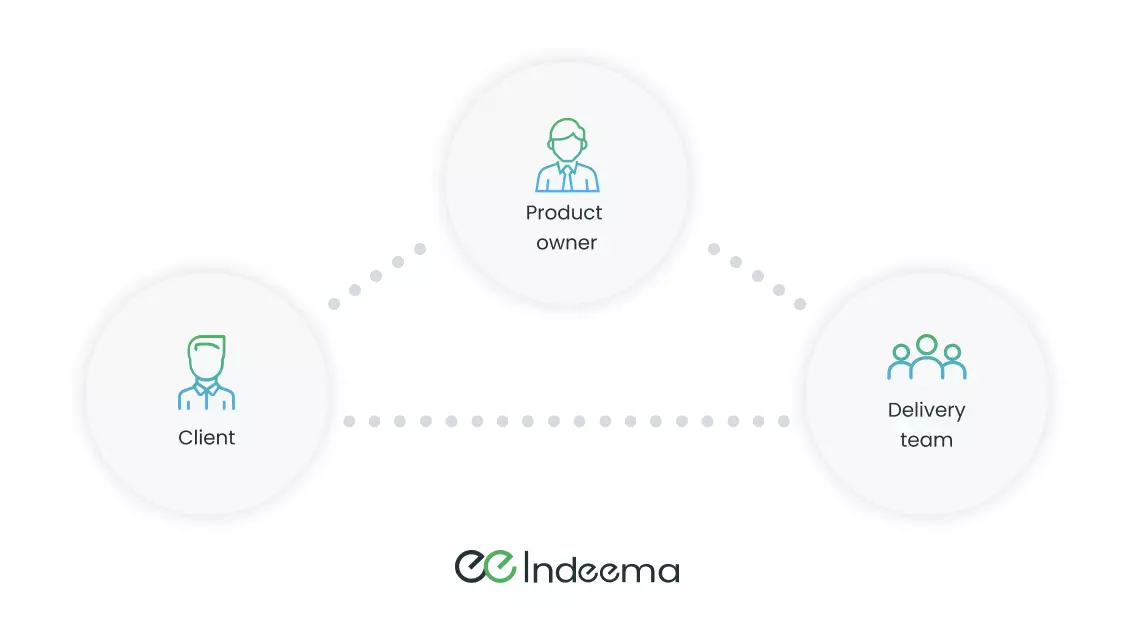
Diagram 5. Assemble a team Last but not least, we specify ways of communication, build delivery and feedback format.
.webp)
Diagram 6. Agree on the means of communication
We help you leverage the power of Internet of Things and secure sustainable growth for your business.
Conclusion
While the importance of project management in software development is taken for granted, planning should never be overlooked as well. Elaborate project planning helps improve project performance, cut down on costs, streamline tracking goals, and effectively manage risks. It’s also a mistake to downplay the importance of resource planning in project management since it allows you to use resources more efficiently.
All of this inevitably translates into more successful cooperation with the clients. In addition, project planning can significantly benefit your team by reducing stress and providing a backbone for a more productive collaboration.
